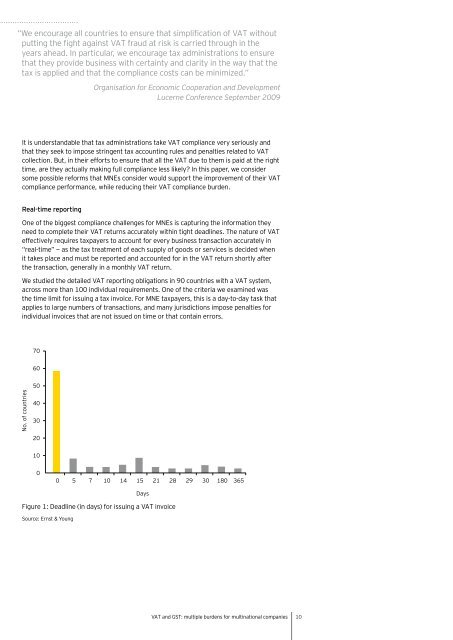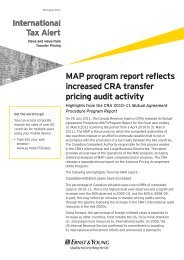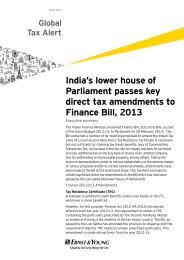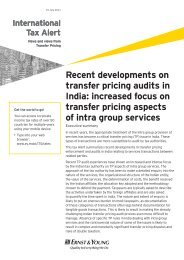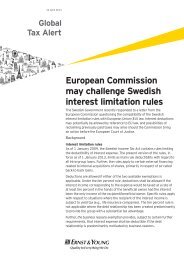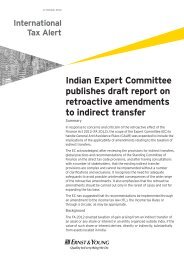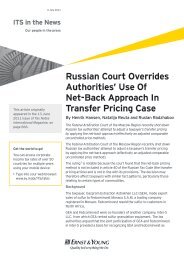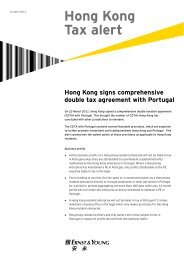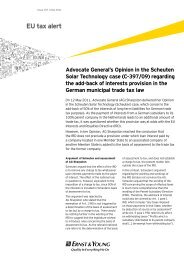(GST) compliance obligations (pdf, 5.62 MB) - Ernst & Young T ...
(GST) compliance obligations (pdf, 5.62 MB) - Ernst & Young T ...
(GST) compliance obligations (pdf, 5.62 MB) - Ernst & Young T ...
You also want an ePaper? Increase the reach of your titles
YUMPU automatically turns print PDFs into web optimized ePapers that Google loves.
“We encourage all countries to ensure that simplification of VAT without<br />
putting the fight against VAT fraud at risk is carried through in the<br />
years ahead. In particular, we encourage tax administrations to ensure<br />
that they provide business with certainty and clarity in the way that the<br />
tax is applied and that the <strong>compliance</strong> costs can be minimized.”<br />
It is understandable that tax administrations take VAT <strong>compliance</strong> very seriously and<br />
that they seek to impose stringent tax accounting rules and penalties related to VAT<br />
collection. But, in their efforts to ensure that all the VAT due to them is paid at the right<br />
time, are they actually making full <strong>compliance</strong> less likely? In this paper, we consider<br />
some possible reforms that MNEs consider would support the improvement of their VAT<br />
<strong>compliance</strong> performance, while reducing their VAT <strong>compliance</strong> burden.<br />
Real-time reporting<br />
One of the biggest <strong>compliance</strong> challenges for MNEs is capturing the information they<br />
need to complete their VAT returns accurately within tight deadlines. The nature of VAT<br />
effectively requires taxpayers to account for every business transaction accurately in<br />
“real-time” — as the tax treatment of each supply of goods or services is decided when<br />
it takes place and must be reported and accounted for in the VAT return shortly after<br />
the transaction, generally in a monthly VAT return.<br />
We studied the detailed VAT reporting <strong>obligations</strong> in 90 countries with a VAT system,<br />
across more than 100 individual requirements. One of the criteria we examined was<br />
the time limit for issuing a tax invoice. For MNE taxpayers, this is a day-to-day task that<br />
applies to large numbers of transactions, and many jurisdictions impose penalties for<br />
individual invoices that are not issued on time or that contain errors.<br />
No. of countries<br />
70<br />
60<br />
50<br />
40<br />
30<br />
20<br />
10<br />
0<br />
Figure 1: Deadline (in days) for issuing a VAT invoice<br />
Source: <strong>Ernst</strong> & <strong>Young</strong><br />
Organisation for Economic Cooperation and Development<br />
Lucerne Conference September 2009<br />
0 5 7 10 14 15 21 28 29 30 180 365<br />
Days<br />
VAT and <strong>GST</strong>: multiple burdens for multinational companies<br />
10


